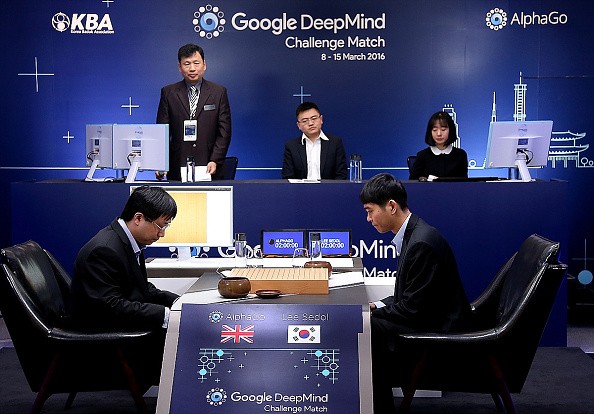China’s top Go player expressed concern that artificial intelligence (AI) will eventually make humans obsolete in the game after an AI developed by Google scored two consecutive victories against a high-ranking Go champion since Wednesday.
It is understandable that people are so concerned about the result, as the ancient game of Go used to be too complex and subtle for computers to crack, Ke Jie, China's no. 1 ranked player, said in an interview with the Global Times.
Ke said that the rapid development of AI may eventually lead to the defeat of all human Go players within a few years.
Invented in China more than 2,500 years ago, Go has thwarted previous AI researchers, as there are more possible board configurations in the game than there are atoms in the universe, David Silver and Demis Hassabis of Google's DeepMind unit said in a blog post in January.
But AlphaGo, a computer program developed by DeepMind, defeated South Korean Go legend Le Sedol twice in a 5-game match on Wednesday and Thursday by a huge margin.
"I am speechless," Lee said in the post-game press conference. "I admit that it was a very clear loss on my part. From the very beginning of the game I did not feel like there was a point that I was leading."
In a press statement, Google said the match marks the first time in history that a computer program has defeated a top-ranked human Go player with no handicap.
"AI's victory over a professional Go player is epoch-making," said Ke, who won against Lee in a competition in January earlier this year. "We used to think that AI could not defeat professional players, as its search could not include all the positions. But the new program is more human-like, and it can simulate players' moves through in-depth learning."
News of AlphaGo's commanding lead against Lee have become a trending topic in Chinese social media. Online discussions hashtagged "Go battle between AI and humanity" on Sina Weibo reached more than 47 million page views, with most posts voicing concerns that AI may eventually replace professional Go players, according to the Sina.com news portal.
"If the program becomes too powerful, it may lead to the downfall of human Go players," Ke said.
However, Hua Xueming, leader of China's national Go team, dismissed fears of AI replacing players as it cannot understand the culture and philosophy embedded in the game.
"Go is not only a competitive sport, but also a vessel of culture. Even if AI can defeat human players, it cannot form its own style or develop its ability to innovate," Hua said.
Observers also noted that the AI's win may actually be good for the game in the long run as it can help teach Go to more people.



























